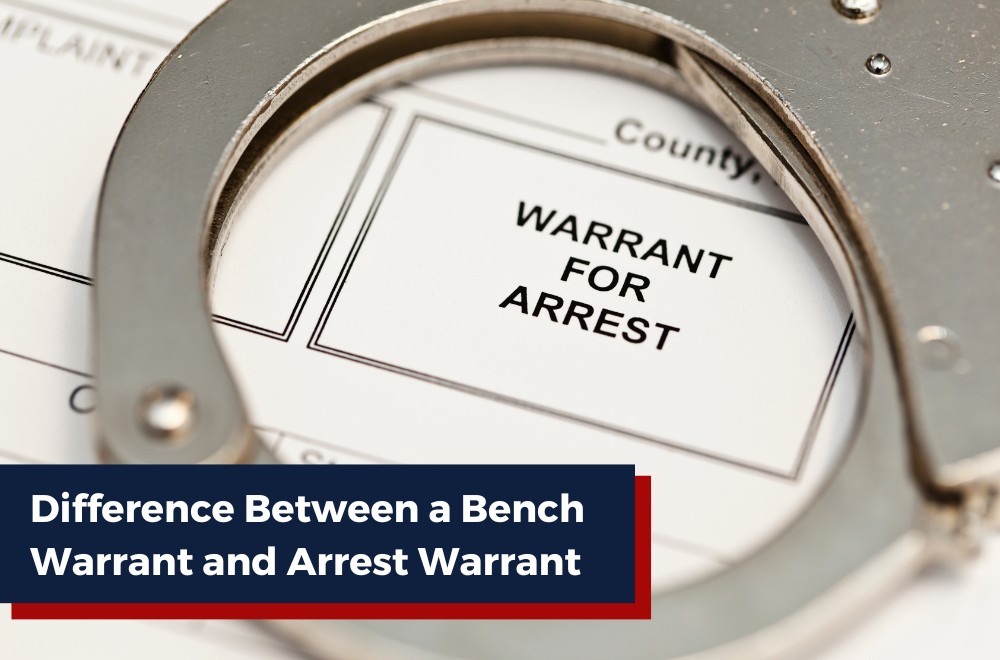Difference Between Warrant And Bench Warrant - Understanding these differences helps clarify one’s rights and responsibilities when faced with such legal orders. Like other arrest warrants, a bench warrant allows a police officer to take someone into custody to answer criminal charges. A bench warrant is an arrest warrant that is issued by a judge or court when a person fails to comply with a court order, prompting the.
A bench warrant is an arrest warrant that is issued by a judge or court when a person fails to comply with a court order, prompting the. Like other arrest warrants, a bench warrant allows a police officer to take someone into custody to answer criminal charges. Understanding these differences helps clarify one’s rights and responsibilities when faced with such legal orders.
A bench warrant is an arrest warrant that is issued by a judge or court when a person fails to comply with a court order, prompting the. Like other arrest warrants, a bench warrant allows a police officer to take someone into custody to answer criminal charges. Understanding these differences helps clarify one’s rights and responsibilities when faced with such legal orders.
DIY Garden Bench Ideas Free Plans for Outdoor Benches Difference
Like other arrest warrants, a bench warrant allows a police officer to take someone into custody to answer criminal charges. A bench warrant is an arrest warrant that is issued by a judge or court when a person fails to comply with a court order, prompting the. Understanding these differences helps clarify one’s rights and responsibilities when faced with such.
Broden & Mickelsen on LinkedIn Understanding the differences between
Understanding these differences helps clarify one’s rights and responsibilities when faced with such legal orders. Like other arrest warrants, a bench warrant allows a police officer to take someone into custody to answer criminal charges. A bench warrant is an arrest warrant that is issued by a judge or court when a person fails to comply with a court order,.
What is a Bench Warrant? Stechschulte Nell
A bench warrant is an arrest warrant that is issued by a judge or court when a person fails to comply with a court order, prompting the. Understanding these differences helps clarify one’s rights and responsibilities when faced with such legal orders. Like other arrest warrants, a bench warrant allows a police officer to take someone into custody to answer.
Difference Between a Bench Warrant and an Arrest Warrant
A bench warrant is an arrest warrant that is issued by a judge or court when a person fails to comply with a court order, prompting the. Understanding these differences helps clarify one’s rights and responsibilities when faced with such legal orders. Like other arrest warrants, a bench warrant allows a police officer to take someone into custody to answer.
Difference Between Arrest & Bench Warrants Schwartz Law Group
A bench warrant is an arrest warrant that is issued by a judge or court when a person fails to comply with a court order, prompting the. Understanding these differences helps clarify one’s rights and responsibilities when faced with such legal orders. Like other arrest warrants, a bench warrant allows a police officer to take someone into custody to answer.
The difference between bench warrant vs arrest warrant
A bench warrant is an arrest warrant that is issued by a judge or court when a person fails to comply with a court order, prompting the. Understanding these differences helps clarify one’s rights and responsibilities when faced with such legal orders. Like other arrest warrants, a bench warrant allows a police officer to take someone into custody to answer.
Difference Between a Bench Warrant and Arrest Warrant
A bench warrant is an arrest warrant that is issued by a judge or court when a person fails to comply with a court order, prompting the. Understanding these differences helps clarify one’s rights and responsibilities when faced with such legal orders. Like other arrest warrants, a bench warrant allows a police officer to take someone into custody to answer.
Difference Between a Bench Warrant and an Arrest Warrant
Like other arrest warrants, a bench warrant allows a police officer to take someone into custody to answer criminal charges. Understanding these differences helps clarify one’s rights and responsibilities when faced with such legal orders. A bench warrant is an arrest warrant that is issued by a judge or court when a person fails to comply with a court order,.
What's the Difference Between a Bench Warrant and an Arrest Warrant
Understanding these differences helps clarify one’s rights and responsibilities when faced with such legal orders. Like other arrest warrants, a bench warrant allows a police officer to take someone into custody to answer criminal charges. A bench warrant is an arrest warrant that is issued by a judge or court when a person fails to comply with a court order,.
Difference Between a Bench Warrant and an Arrest Warrant
Understanding these differences helps clarify one’s rights and responsibilities when faced with such legal orders. Like other arrest warrants, a bench warrant allows a police officer to take someone into custody to answer criminal charges. A bench warrant is an arrest warrant that is issued by a judge or court when a person fails to comply with a court order,.
Like Other Arrest Warrants, A Bench Warrant Allows A Police Officer To Take Someone Into Custody To Answer Criminal Charges.
A bench warrant is an arrest warrant that is issued by a judge or court when a person fails to comply with a court order, prompting the. Understanding these differences helps clarify one’s rights and responsibilities when faced with such legal orders.









